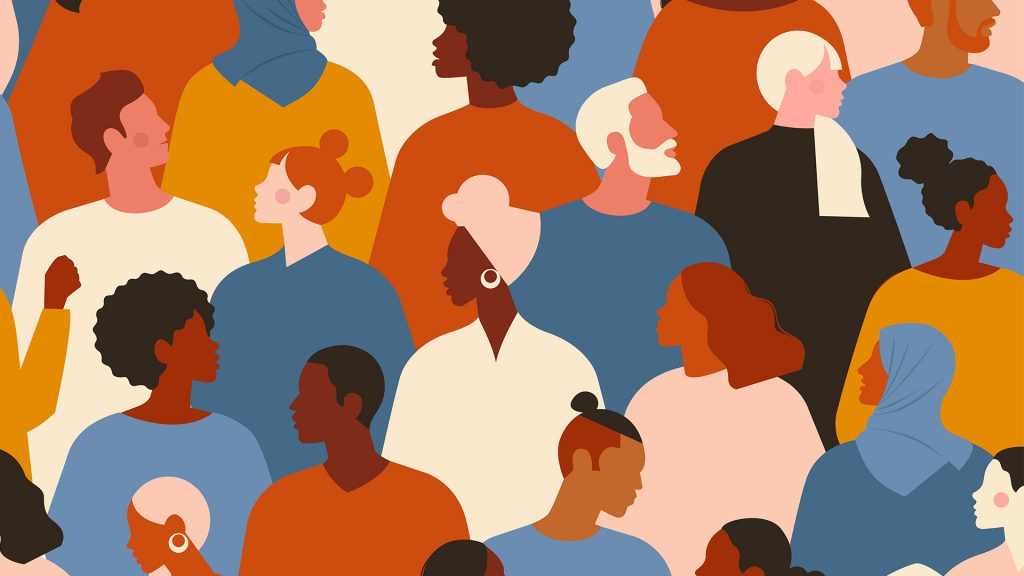Reflections on a Privileged Life

I grew up in Chester, England, in the 70s and 80s. My dad was a physicist working at Daresbury Laboratory; my mum was a stay-at-home mother; I had two siblings; we had one dog. We didn’t have any ‘spare money’ for anything other than day to day living, but I guess we were middle-class although I had no idea what that terminology meant back then. I was deeply loved by my siblings and parents, had a happy childhood, and did well at school. All was good in my world. I had no idea or awareness that there might be another world or experience.
The first time I met someone from a BAME background, and I am literally not exaggerating, was when I was 17. He joined the Lower 6th at school. He was the only person of colour at our school (which was the local state school) at that time. He was lovely and got on with everyone. He was in the ‘in-crowd’ and started dating the most popular girl in the school. They later married. I have no recollection of any conversation at all about race. I don’t recall any conversations about his family, his cultural heritage, his background. I have no awareness of any micro-aggressions. That doesn’t mean they didn’t happen of course, but that just wasn’t on my radar (and maybe not on anyone else’s).
I went to university to study languages. I went out with an international student from Burkina Faso. I don’t recall race being something that we actively explored together. He was my boyfriend; I was his girlfriend. We hung out. I spent six months of my placement year in Ouagadougou, Burkina Faso. It was one of the most incredible experiences of my life, but again, not a particular trigger for exploring issues of race, racism and white privilege. After I graduated, I spent a year in Dakar, Senegal. All my friends were Senegalese; I had a blast. We didn’t talk about race, racism, or white privilege. I met one of my life-long best friends during that year; she was later my bridesmaid. She was in Dakar doing the same as me (teaching English as a Foreign Language). She’s from London, of Jamaican heritage. In so many ways, we were the same with similar educational and life experiences. We didn’t at that time explore the differences. It just wasn’t on the radar.
Fast-forward 25 years, and I realise that my ignorance on issues of race, racism and white privilege far exceeds my knowledge. I worry that I am that person that assumes that because I have many people from BAME backgrounds in my life, I can’t possibly be racist. I worry that I am that person that assumes that because her professional expertise is around people and organisational development, I don’t have bias. I worry that I have spent years of my life not recognising that the lived experiences of people who I love and/or work with are very different to my own.
Why did I never ask questions about those experiences? Why have I never realised that whilst I may have had times of challenge in my life, it has never been because of the colour of my skin? Why have I not acknowledged that my children, by virtue of the colour of their skin alone, have privilege. Waking up to my privileges and knowing more about some of the challenges my BAME colleagues experience inspires me to ask questions with the intent to listen, learn and champion positive change by becoming an active ally.
As I continue to work on becoming an ally, I am aware that I am in a role in which I can influence change. I ask that colleagues be patient with me as I embark on the learning journey by asking questions. Consequently, I hereby make these pledges to those reading this short reflective piece. I promise to invest in deepening and broadening my understanding of race, racism and white privilege. I promise to use the position that I have to influence change, and I promise to use my platform to advocate, champion and amplify the voices of marginalised groups, with a view to creating an inclusive environment in which every individual feels psychologically safe to bring their whole self to work.
Adèle MacKinlay
Director of People, Organisational Development and EDI
Equity, Diversity and Inclusion
Reflections, comments, discussion and opinion on EDI topics from Loughborough University staff and students